What a week! Parliament is sitting (but not quietly) and there is lots of coverage from the Labour Party conference including the fringe events.
Fresher loneliness
Fresher loneliness: The British Association for Counselling and Psychotherapy and Louise Knowles (Sheffield University) have spoken out on tackling loneliness during the first few weeks when starting university.
- For many, the thought of Freshers’ Week conjures up images of non-stop partying, a whirlwind introduction to university life and new places, opportunities and friendships. But for some students it also brings a feeling of anxiety, isolation and the start of a long battle against homesickness.
- Fresher’s Week can be a culture shock. Some students relish this and enjoy the excitement, but others are like a rabbit caught in headlights.
- Being isolated affects your psychological wellbeing. When they start at university, many students have lost the comfort of home, someone to cook for then, that structure they had, their community of family and friends for support.
- It’s especially true for marginalised students – such as international, disabled or mature students. They can feel at a loss. They will wonder ‘is there anyone else like me here?’ or ‘where can I get support?’
Having a sense of community can be key to helping a student overcome homesickness.
Sense of belonging
- “They need to build up that sense of community, that sense of belonging.
- “Some students can be very reserved. They might not be comfortable in large social groups or going out clubbing all the time with lots of new people. They might find it easier to join smaller, informal groups, and look for activities on a smaller scale to join in.
- “We have to push ourselves a little bit to put ourselves out there and build a new community, but not to the depths of despair.”
There are university societies to pretty much cover every interest and hobby, as well as for specific groups of students, and they can often help people form a much-needed community to help them settle in.
Preparation
- “Some students haven’t had much preparation for university. If they’ve accepted a place through clearing they may not even known where they were going until a few weeks before. It does help to familiarise yourself with where you’re going and what life’s going to be like before it’s thrust on you in the first week of term.“
Freshers’ Week and the following few weeks can be a bit of a blur. Some people want to jump in and do everything. Others want to familiarise themselves with university life more slowly. “It’s important students remember to take it at a pace that they are comfortable with.”
Wonkhe have a fresher related blog: Are freshers the new realists when it comes to mental health support?
Initiations: UUK have published a briefing, Initiations at UK Universities, to raise awareness of the dangers associated with initiation tasks and excessive drinking among students. The briefing sets out recommendations and actions they suggest universities should take to prevent and respond to dangerous behaviours and aim to drive a change in attitudes towards these events.
The briefing includes a consensus statement on the best way forward from stakeholders across the university and health sectors and examples of emerging good practice. Here are the key recommendations:
- Adopt a clear definition of what constitutes an initiation which focuses on prohibited behaviours
- Foster cross-working and a whole university approach. This means including work to prevent initiations as part of strategies to tackle harassment and promote good wellbeing and mental health
- Evaluate new initiatives and share knowledge and good practice, continuously assessing progress being made
- Update or develop policies and practices to explicitly refer to initiation events and the problems that arise from them
- Ensure proportionate disciplinary processes and sanctions are in place, noting that a “zero tolerance approach” is unhelpful as it implies initiations do not happen
- Provide clear reporting systems and advertise support available to students
- Raise awareness of initiations and their risks among students and staff
- Organise appropriate staff training, identifying the levels of training needed for different staff. First responders will need the most training, for example.
- Work with the local council, licensees and partners to ensure the campus environment promotes responsible behaviours towards drinking
- Work with alumni to encourage an increased sense of responsibility for the safety of student groups and societies of which they were a part
Wonkhe have a new blog exploring the complexities for universities to walk the right balance over initiation.
Parliament is back
The supreme court ruled that PM Johnson was unlawful in his advice to the Queen to prorogue parliament. A summary of the court’s decision is here. In essence:
- For present purposes, the relevant limit on the power to prorogue is this: that a decision to prorogue (or advise the monarch to prorogue) will be unlawful if the prorogation has the effect of frustrating or preventing, without reasonable justification, the ability of Parliament to carry out its constitutional functions as a legislature and as the body responsible for the supervision of the executive. In judging any justification which might be put forward, the court must of course be sensitive to the responsibilities and experience of the Prime Minister and proceed with appropriate caution.
The court ruled that Parliament was frustrated and its ability to debate the Brexit change curtailed:
- This was not a normal prorogation in the run-up to a Queen’s Speech. It prevented Parliament from carrying out its constitutional role for five out of the possible eight weeks between the end of the summer recess and exit day on 31st October. Proroguing Parliament is quite different from Parliament going into recess. While Parliament is prorogued, neither House can meet, debate or pass legislation. Neither House can debate Government policy. Nor may members ask written or oral questions of Ministers or meet and take evidence in committees. In general, Bills which have not yet completed all their stages are lost and will have to start again from scratch after the Queen’s Speech.
- This prolonged suspension of Parliamentary democracy took place in quite exceptional circumstances: the fundamental change which was due to take place in the Constitution of the United Kingdom on 31st October. Parliament, and in particular the House of Commons as the elected representatives of the people, has a right to a voice in how that change comes about. The effect upon the fundamentals of our democracy was extreme. No justification for taking action with such an extreme effect has been put before the court.
- The Court is bound to conclude, therefore, that the decision to advise Her Majesty to prorogue Parliament was unlawful because it had the effect of frustrating or preventing the ability of Parliament to carry out its constitutional functions without reasonable justification.
- The prorogation was also void and of no effect. Parliament has not been prorogued. This is the unanimous judgment of all 11 Justices.
So all bills that were previously passing through parliament are resumed and Parliament is sitting again. A recess for the Conservative Conference was not approved. Next week will be another interesting one.
Fees and funding
Meanwhile, on Monday, Wonkhe reported that the Sunday Times confirmed that ministers have “shelved” implementing the Augar recommendation to cut full-time undergraduate English tuition fees to £7,500. Wonkhe continue:
- This does not mean that higher education finance will not make its way into a future Conservative election retail offer to students and young people – maintenance grants, expansion of higher technical and apprenticeship qualifications, and interest rates on student loans could all plausibly feature – and would generate fewer direct comparisons to Labour’s free tuition offer. Though other parts of the Augar recommendations will perhaps make it through the month, the “big difference” that education secretary Gavin Williamson claimed the Augar review is making to his thinking, now looks quite a bit smaller.
And there is a new Wonkhe blog on the topic.:
- The Sunday Times reports that ministers felt there was no parliamentary majority for any legislation. However:
- Making changes to the fee cap would just require a statutory instrument. From the way HERA has been drafted it is difficult to see what the precise process would be to lower fee caps… but there is no indication that lowering fees would require such a vote.
- The blog suggests Jo Johnson killed off the fee reduction “Six weeks would be plenty for him to kill off the idea of ill-considered tweaks to his 2017 legislation. He lost his job over opposition to the post 18 review, so given a second chance he was always going to take the opportunity to render it harmless.”
Voter registration
Electoral Registration: With the prospect of an election before the end of 2019 looming an Electoral Commission report holds particular interest for the student voter registration hurdle. They find that local government registers are only 83% complete (so between 8.3 and 9.4 million people are not correctly registered). The greatest risk factors for non or inaccurate registration are:
- Aged 18-24 years
- Having lived at current address for less than two years
- Renting from a private owner
- Being of ‘other ethnic background’ or ‘mixed background’ ethnicity
Several of the risk factors chime with the HE student demographic, which also has the additional hurdles of understanding the electoral registration process given their dual (home/study address) residence status. Alongside the de-prioritisation of registering to vote against the many other items competing for their attention when they start or return to university.
KEF is coming – and more money for knowledge exchange
A couple of significant announcements were made this week by the Universities Minister.
Universities Minister Chris Skidmore has today announced a new strategic direction for university knowledge exchange funding to drive the high performance needed to deliver the government’s commitment to raise research and development investment to 2.4% of GDP.
The measures announced at the Research England Engagement Forum event in London today, Thursday 26 September, include:
- Confirmation that Higher Education Innovation Funding (HEIF) will rise to £250 million by 2020/21
- Roll-out of the first iteration of the Knowledge Exchange Framework (KEF), with the first results anticipated in 2020
- A comprehensive Research England-review of the current HEIF funding method, aiming to put the KEF at the heart of the approach
- The launch of a joint call with the Office for Students (OfS), making £10m available for projects that evidence the benefits to students of being involved in knowledge exchange
You can find more detail here: Research England
Universities Minister, Chris Skidmore, spoke to celebrate the broad range of topics and internationalism within the Future Leaders Fellowships second wave. He also spoke about early career researchers:
- I also want to highlight what I’ve referred to as the ‘Cinderella subject’ of education and research policy: that surrounding early career research. How can we create an environment that ensures early career researchers are not only better paid, but feel valued, that their work is properly recognised and rewarded?
And on the academic juggle:
- I also am acutely aware that for all Future Leaders Fellows, the ability to conduct your research unhindered and free from the constraints of what should I say, ‘normal academic life’, is just as important as some of the financial investment that has been made today.
- Pressure is experienced by us all, but I know myself as a historian, writing books late into the night, that there are few disciplines such as the process of academic thought and research creativity, that can be so adversely affected by the impositions of the outside world.
- So I’m keen to do all I can to help investigate how to reduce these pressures, to understand where we need to refine our processes and minimise unnecessary paperwork, and find out where additional flexibilities need to be created, to clear the path for researchers to be free to conduct the research they need to.
- This includes looking again at our various research funding models, ensuring that we are doing everything we can to unlock the creativity and imaginations of everyone working in research, whether they work in universities, research institutes or in industry.
- It also means focussing on our efforts on that critical point in a researcher’s early career, when they feel most precarious, and when the strictures of an academic career can seem so burdensome that most choose simply to take a different path in life, away from research altogether.
More detail on the Future Leaders projects can be found here.
Skidmore also spoke on Space and the importance of small business innovation this week.
Lastly, PM Boris visited a school and the BBC captured his talk with the children when he reminisced that he didn’t do enough work at university and frittered too much time at university. He advised them to use their time productively: “Don’t waste your time at university, don’t get drunk…use it well”.
HE Data
The OfS have released a new area based measure of access named TUNDRA (tracking underrepresented students by area). As the name suggests it is a data source derived from the tracking of 16 year old state funded mainstream school pupils in England on an area basis who participate in HE at age 18 or 19. They have also updated the POLAR4 postcode data which measures how likely a young person is to participate in HE based on their postcode. Note: POLAR 4 covers all schooling types as it is an area based measure. However, questions of the validity of any postcode based metric remain due to start discrepancies which mask disadvantage within postcode areas. And Minister Chris Skidmore has been open within his criticism over the shortcomings of this measure. The Government (and OfS) are rumoured to be quietly investing more time in understanding whether the index of multiple deprivation has potential for greater use in the future. Back on the OfS site are also interactive maps selectable by each of the four types of recognised young participation measures (TUNDRA, POLAR 3 & 4, NCOP) and the calculation methodologies for each type of measure are here.
Data guru David Kernohan of Wonkhe gallops through the main features, issues and oddities of TUNDRA in A cold spot on the TUNDRA.
OfS data – Changes in Healthcare Student Numbers
The OfS have published data on healthcare student number changes following the removal of the bursary system (2017 entrants). The data compares 2016-17 to 2017-18 highlighting:
- An 11% drop in the number of students starting nursing courses (19,790 down to 17,630). Students aged over 21 dropped by 17%
- A 3% increase in students starting midwifery courses
- Little overall change in the number of entrants to allied health courses, with some courses growing and others decreasing. E.g. physiotherapy increased by 19% (250 students), while podiatry decreased by 19% (45 students)
- Overall, the number of young entrants to healthcare courses increased by 8%, BUT the number of mature students decreased by 30%
- Overall, there was a slight increase in entrants from the lowest POLAR4 quintiles (areas of lowest participation).
They said that the full impact of the reforms will not be evident until more years of data are available.
Yvonne Hawkins, Director of Teaching Excellence and Student Experience, said:
- The reduction in nursing and healthcare students is a concern for the health workforce of the future. We are working in partnership with universities, Health Education England, NHS England and representative bodies to increase the numbers of healthcare students and there is emerging evidence that this work is starting to have an impact.
- The OfS is supporting a number of innovative projects to boost take-up and development of specialist healthcare courses – as well as providing direct additional funding for the delivery of high-cost healthcare subjects. This data will help universities to identify gaps and opportunities to increase recruitment and ensure that the country is provided with the next generation of highly-trained health professionals’
Immigration: The Tier 4 Visa list which catalogues the institutions licensed to sponsor migrant students has been updated. It includes information about the category of students a provider is licensed to sponsor and their sponsorship rating.
Students
UCAS have launched the UCAS Hub which aims to bring together all a student’s research about their next steps into one place including HE and apprenticeships. UCAS describe it as: a personalised, digital space for young people considering their post-18 choices, as well as anyone thinking about returning to education.
It seems it is a week for one-stop shops as UK music have launched their own to help students and parents consider a career in the creative industries. Excerpt:
DiscoverCreative.Careers is designed to help students and their parents, guardians and teachers find out more about the careers in industries including advertising, architecture, fashion, film and television, museums and galleries, performing arts and publishing – and the routes to them.
The creative industries are growing three times faster than the UK economy as a whole and to meet the predicted growth, there is a need for more young people to choose a career in one of the UK’s most dynamic sectors. The new site will signpost users to the full range of jobs available to counter an historic dearth of good careers information for the creative sector.
The initiative is part of the Creative Careers Programme being delivered by ScreenSkills, Creative & Cultural Skills and the Creative Industries Federation supported by the Department for Digital, Culture, Media and Sports as part of the Government’s industrial strategy. The lead partners have worked with organisations covering the 12 subsectors of the creative industries to provide expert information on the range of jobs. (More content here.)
HE Participation Stats
The DfE has published statistics on Participation Rates in HE from 2006 to 2018 (and this link gives previous years of data). It shows rise in the Higher Education Initial Participation rate, a stable gap between male and female HE participation and a highest rate of 18 year olds accessing HE. The detail is explained here.
New Insight: See the OfS press release in our WP and Access section on their new Experimental Statistics which group disadvantaged student demographic characteristics to, hopefully, provide answers to tricky questions such as why certain groups of students are more likely to drop out or encounter difficulties whilst studying.
Widening Participation and Access
Experimental Statistics: The OfS highlight new experimental statistics which consider the interaction of demographic characteristics. Imaginatively named ABCS (Associations Between Characteristics of Students) the OfS state the statistics could offer important insights on the combining factors which leader to non-access or poorer outcomes for disadvantaged students. The OfS press release says:
Associations between characteristics of students’ (ABCS) is a new, experimental set of analyses that seeks to better understand how multiple characteristics – like age, sex, ethnicity and area background – interact to affect students’ outcomes in higher education, including whether they get in to university and, if so, whether they continue beyond their first year.
The methodology could also be used in future to look at the results students achieve and whether they progress to graduate employment, and across all levels of higher education.
The kinds of findings that can be explored using the ABCS methodology include:
- black Caribbean students aged 21-25 are at higher risk of dropping out than other students, and this risk increases dramatically when looking at those who also report having a mental health condition
- although young female students are, on the whole, much more likely to go to university than male students of the same age, those who received free school meals were far less likely to go than those who did not.
Chris Millward, OfS Director for Fair Access and Participation, commented:
- Our guidance encourages universities and other higher education providers to address combinations of characteristics when they are setting targets, choosing measures and evaluating their work to close equality gaps.
- Our hope is that, in the future, measures such as these will help them better understand these interactions, and therefore target their work more effectively.
- This work is experimental, so we are looking to users to provide feedback on all aspects of the methodology and measures. This will be crucial to any future development and use of these analyses.
Power of the Parent: FE Week has an article stating the truism that every WP practitioner knows – the power of the influencing parent on a young person considering their HE prospects. Towards the end of the article are some suggestions on how to bring parents on board.
Differentiated Fees: Colin McCaig (Sheffield Hallam) has a policy paper explaining how differentiated fees (e.g. based on higher fees for higher tariff entry points to a course) would significantly undermine widening access for underrepresented social groups. In particular they find that applicants from low income households would gravitate towards lower cost provision rather than accessing the prestigious, high tariff, high cost institutions.
Tricky Target Decisions: The Times letters to the editor contains Degrees of Privilege (scroll to half way down the page to find it) which explores the complexities (and hints towards a fairness question) in widening access targets.
Private Tuition
The Sutton Trust and Ipsos MORI surveyed schools and found that 24% of secondary teachers have offered paid for private tuition, two-thirds did so after direct approach by parents of pupils. In primary school it is 14%. The survey also found that in 2019 27% of 11-16 year olds have received private tuition at some point during the last four years, up from 18% in the 2005 survey. The duration of the tuition isn’t stated but looking at the data it appears around 10% of the 2019 27% had tuition across multiple years in the last four years.
24% accessed the private tuition for a school entrance exam, and 37% for a specific GCSE subject, 4% because their school doesn’t offer a particular subject they wish to study.
The increase in private tuition is contentious because, unsurprisingly, the young people who receive it come from better off backgrounds (34% from high affluence households, 20% from low affluence households). The Sutton Trust’s press release says:
- The Education Endowment Foundation (EEF), the Sutton Trust’s sister charity, has identified one-to-one and small group tuition as a very cost-effective way to boost attainment. To level the playing field outside the classroom, schools should consider prioritising one-to-one and small group tuition in their Pupil Premium spending. The government should also look at ways of funding access to such tuition sustainably, for example through a voucher scheme.
- The Trust would also like to see more private tuition agencies provide a certain proportion of their tuition to disadvantaged pupils for free, as well as an expansion of non-profit tuition programmes that connect tutors with disadvantaged schools. Agencies like Tutorfair, MyTutor and Tutor Trust operate innovative models in this area.
The Sutton Trust’s other recommendations are available here. The survey results are available here.
This was a limited scope survey designed to provide a yearly update to the two key questions of how many mainstream teachers are offering private tuition and how many young people are being tutors. The research does not answer questions behind the increase in private tuition, such as whether the Government’s raising of curriculum standards may have been a factor in compelling parents that can afford additional tuition to do so. However, the data shows that accessing private tuition has increased at a steady rate since 2005.
The next challenge – continuation
The Ministers have made a big WP student success speech this week. SoS Education, Gavin Williamson, and Universities Minister Chris Skidmore both spoke out to compel universities to do more to reduce dropout rates, particularly within the disadvantaged student body. The Government news story highlights how the Government are looking to the Access and Participation Plans that all registered providers are required to have as a vehicle for sector movement to improve the drop out disparity. While more disadvantaged students now access university (although students from advantaged areas are still 2.4 times more likely to access HE) there is a gap with students from lower income backgrounds more likely to drop out of university. In 2016/17 6% of advantaged students dropped out compared to 8.8% of disadvantaged. Of concern is that the drop out gap has become wider from the previous year. The news story says:
- Ahead of… the publication of new statistics on access and participation by university regulator the Office for Students, Mr Williamson has underlined his determination to take action and ensure every student choosing to go to university – regardless of background – is supported to get the most out of the experience….[he will]…say that more needs to be done to make progress on access and participation at our world-class institutions. He will urge all universities to follow in the footsteps of institutions like Kings College and improve their offer for students from disadvantaged backgrounds.
The Education Secretary of State, Gavin Williamson, said:
- It is not good enough that white working class boys are far less likely to go to university and black students are far less likely to complete their courses than others. We cannot let this wasted potential go unchecked any longer.
- I want all universities, including the most selective, to do everything they can to help disadvantaged students access a world-class education, but they also need to keep them there and limit the numbers dropping out of courses. My message is clear – up your game and get on with it.
Universities Minister Chris Skidmore said:
- Progress is being made to ensure that more disadvantaged young people are going to university than ever before, but it’s not enough to get students through the door – they must then get the right support to complete their courses too.
- Dropouts will be a key focus of mine as Universities Minister and I will be watching carefully to see how universities respond to this challenge. I fully support the OfS in taking action if providers fail to do all they can to deliver their commitments.
The Government news story concludes: The Government’s wide-ranging reforms to higher education has led to the publication of access and participation plans…The OfS will closely monitor all these providers to make sure they follow through on their plans.
UUK have responded to the speech – Julia Buckingham, UUK President, said: “there is more work to do” and called on the government to “quicken the progress” by “reintroducing maintenance grants for students most in need”.
Media coverage can be found in iNews and ITV.
Labour Party Conference
32 hour working week: At the Labour Party conference John McDonnell said the next Labour government will reduce the average full time working week to 32 hours within a decade. A shorter working week with no loss of pay. HEPI have a short new blog on what this might mean for university staff and whether it also applies to students who work long hours as part of their course load (medicine, health, architecture and education).
Abolishing Student Fees: Jim Dickinson from Wonkhe highlights the unknowns within Labour’s commitment to abolish student fees:
- Blimey. Do you remember when the most interesting that happened at Labour Party Conference was Cherie Blair mouthing “the chancellor’s a liar” on her way out of Tony’s speech?
- For higher education, the inclusion of “no fees” in Labour policy has never really been in doubt, and popped up several times in Brighton. The question is the deeper complexity – would existing debt be wiped? Would the unit of resource be protected? Would more students in England be discouraged from doing higher education in universities rather than FE colleges? What kinds of incentives will get the adults back? Will OfS be scrapped or reformed? The party is unforgivably vague or refreshingly open to ideas, depending on your perspective.
- Labour’s Lifelong Learning Commission is expected to provide some answers, but has not produced its findings in time for conference. Gordon Marsden is furious that Gavin Williamson has announced subject TEF before the independent review has even been presented to Parliament. But given that every delegate agrees that the system is too “marketised”, the thorniest question was on student numbers. Say out loud that you’d have number caps and you look like an enemy of opportunity. Say you wouldn’t and you rule out the thing that has caused the intensification of competition in the first place. Marsden said neither, of course.
MillionPlus call for maintenance grants to be reinstated: Professor Lynn Dobbs, VC London Metropolitan University was a key speaker at a Labour fringe event. She said under a National Education Service (NES) a Labour government should restore student maintenance grants and guarantee investment, in order to deliver a well-funded tertiary education system for all. She said:
- Guaranteeing sustainable investment across tertiary education can foster collaboration rather than competition between universities and colleges.
- Shifting money around within education only moves problems from one part of the sector to the other, and from one set of students to other, does not address the critical issue of a real-terms reduction in investment in all of our students – none of us should EVER settle for that.
She urged for part-time and mature students to become a priority: The need to focus on part-time and mature students is much needed … Despite the populist narrative of ‘too many students’, fewer than 50% of 30 years olds in the UK have had the opportunity to experience any form of higher education – this is a low bar that we should be seeking to leap over.
Abolishing Ofsted: There were tweets (and another tweet) and news stories from the Guardian and Politics Home on scrapping Ofsted to be replaced by a teaching standards support system. Angela Rayner: Schools will no longer be reduced to a one-word grade or subjected to a system that hounds teachers from the classroom.
Further Education and the Fair Economy: The Social Market Foundation and the Further Education Trust for Leadership (FETL) ran the Further Education and the Fair Economy fringe event. The panel discussed further education and the opportunities it opened for elderly people, as well as disabled students. Time was also spent discussing the impact it had on social mobility and the future economy.
- Chair James Kirkup, director, Social Market Foundation said that further education was pivotal to the future economy and insisted that politicians needed to increase their engagement in FE considerably.
- Opinium’s research manager, Priya Minhas provided an overview of public perceptions of vocational qualifications, noting that they were well perceived in terms of practicality. However, she noted that most people saw university degrees as more useful for future careers and linked university education with more than just a skillset – they had an intellectual and social aspect too. Yet, vocational qualifications did have a reputation for helping people get into a job. She discussed the potential for “Nimbyism”, wherein people spoke positively about vocational qualifications but would not want them for their own child. However, the data did not simply support this hypothesis.
- Lord Bassam of Brighton expressed disappointment at the gradual erosion of funding for FE, which had served to destabilise the sector and restrict access to FE for many people. He praised the Augar Review and said that it was through the review that the Government had realised that they needed to improve their work in the sector. He concluded by emphasising that if the Government truly believed in improving the quality of manufacturing in the UK, then it needed to increase support for FE.
- Caireen Mitchell of Croydon College said that many colleges, including her own, had been forced into mergers due to financial pressures. She welcomed the announcement of £400m for the FE sector but said that far more was required. The implications of the funding shortage could be extensive, with far lower hours for a “full-time” programme compared to other European countries the primary concern for Mitchell. She also noted that health and mental health support was stretched, and extra-curricular activities were being slashed in favour of other priorities. The college could provide qualifications, Mitchell said, but a wider breadth of education was simply not possible. She linked the lack of funding to a lack of social mobility and productivity, with many low-income students unable to afford to continue in education. She said people on low-incomes needed free access to a rounded education, including subjects that were not “core” such as English and Maths.
- Gordon Marsden MP (Shadow Minister for HE, FE & Skills) referenced the House of Lords Committee on seaside towns, noting the challenges that people in those areas had in accessing higher education and said that the educational challenges in those areas was “palpable”…The economic and political context was that skills were no longer siloed – the rise of technology meant that skillsets were far more fluid and varied than before. This, Marsden believed, made FE more vital than ever.
- A representative from the Deaf Children’s Society noted that FE was often a better route for disabled children and asked what more could be done to assist disabled people get the careers they wanted. Gordon Marsden said that Labour had wanted to make provisions in law to put a special emphasis on disabilities generally in education and apprenticeships. The Government had not been willing to work with them so far, he said.
Immigration – What should be in Labour’s manifesto?: The session focussed on immigration policies as a whole and didn’t specifically cover HE.
- Shadow home secretary Diane Abbot said that there was a lot of interest in immigration and that (following her own experience working in the Home Office after university) it was essential that the culture of the Home Office changed and the language it was having around migration. She highlighted a poll which suggested that in the last few years the UK had had an increasingly positive view of the benefits of immigration, with a poll this year showing that 22% of people believed immigration provided a net benefit to the UK.
- Abbot said that Labour would look to unpick those policies introduced by both Labour and Conservative governments that tied into the hostile environment, principally that immigrants could not have access to resources once in the UK. Labour would not seek to impose salary limits for access to the UK as the £30,000 figure excluded valued professions like nurses. And that Labour would also entitle family members to join people already in the UK.
- Abbot criticised the Home Secretary’s commitment to end freedom of movement from day one and explained that it had to be reserved quickly because it was illegal. Abbot said that Labour would take a more liberal approach to immigration which she said had become increasingly popular.
- Thom Brooks, professor at Durham University, offered his views on immigration, stating that an EU citizen amnesty should be introduced because the current EU settlement scheme was inadequate. He said he would like the 2014 Immigration Act to be repealed and reviewed with the view that immigration was positive for the UK overall. He also said that the Migration Advisory Committee was too small and should be expanded so there would be more expertise. He called for a Royal Commission to be conducted on immigration, which could form the basis of future immigration policies.
- Kate Green, chair of the APPG on Migration, said that Ministers in the Home Office should be giving their civil servants a positive message about immigration and affirmed that immigration should be viewed as being beneficial to the UK. Green said that migration would rise across the world because of conflict and climate change and said that it was a shame the UK was leaving the EU because this was an important institution the UK could use to influence global issues.
Industrial Strategy, Skilled Jobs and Education; Run by the Fabian Society and the Association of the British Pharmaceutical Industry this event focused on assessing on how places, communities and regions can all see good work grow. The panel questioned what methods can be undertaken to ensure not only high employment, but also high skilled jobs. There was consensus that stronger regional strategy for providing skilled jobs is needed but also a strategy which guarantees that jobs remain “good” with the implementation of automation and new technology.
Shadow Minister for Business, Energy and Industrial Strategy Chi Onwurah MP opened the discussion on the topic of skilled jobs everywhere which she said is driving part of the industrial strategy. [Note – Labour have their own version of the Industrial Strategy.] Key points are:
- strong cross sector investment and a strong focus on investing in infrastructure so that people have sufficient access to jobs.
- delivering skilled jobs as part of an industrial strategy, this would allow for some divisions to be healed amongst regions, prosperity would be delivered
- innovation needs to be a part of the “cultural DNA of our country” and the UK needs to become an “innovation nation”; if this remains a key goal then access to skilled jobs can be broadened to those who are currently excluded
- there should be the implementation of a National Education Service that champions adult education and enables people to reskill.
- both the industrial strategy and education strategy should be combined and work alongside each other so that individuals can “realise their dreams”.
- international talent is vitally important and even those who earn less than £30,000 should have access to work in the UK
Labour’s Anti-Private Schooling Motion: At the Labour Party Conference a motion was passed intending to dismantle the private school system should Labour win the next general election. Previously Labour said they intended to close the tax loopholes available to elite private schools, redistributing this money to ‘improve the lives of all children’. However, the motion, spearheaded by the Momentum faction, said the next Labour manifesto should include a: “commitment to integrate all private schools into the state sector…[and]…withdrawal of charitable status and all other public subsidies and tax privileges, including business rate exemption. Plus: “endowments, investments and properties held by private schools to be redistributed democratically and fairly across the country’s educational institutions”. It also said that universities only admit 7% of students from private schools, to reflect the proportion of all pupils who attend them. More details are in this Politics Home article. Laura Parker, Momentum’s national co-ordinator, said: “This is a huge step forward in dismantling the privilege of a tiny, Eton-educated elite who are running our country into the ground.
The Letters to the Editor of the Times on Labour’s proposed abolition of private schools provide some interesting questions on how beneficial it would be to society to carry this policy through.
From the Labour NASUWT fringe event on valuing teachers:
- Dr Patrick Roach, Deputy General Secretary of NASUWT – in some instances, teachers only had a single GCSE in the subject area they were responsible for, which had led, he added, to a culture where “as long as you are one-page ahead in the textbook of the pupils that you are teaching then that is good enough.” He lamented that this is not good enough.
- Mike Kane, shadow schools minister, said that the Labour Party would bring an end to “toxic testing” and ensure that teachers had proper qualifications in a bid to bring “hope” back to the profession. He proceeded by highlighting how Conservative cuts to university budgets and training courses had led to an influx of unqualified teachers entering schools. He said “far too many teachers in our system are absolutely unqualified. It isn’t a profession, it is becoming more of a trade which you learn on the job”. Kane continued emphasising that forcing teachers to “teach to the test” coupled with a litany of legislation had resulted in plummeting morale.
The Class Ceiling: Barriers to Social Mobility in the UK today. This event run by Demos and The Investment Association focused on the challenges facing social mobility today. In particular, how aspirations, access to jobs and attitudes can be altered amongst those who have the least opportunity and come from backgrounds that traditionally limits how far people go in life.
- Duncan Exley, former director of the Equality Trust, said that during the 20th Century there was more social mobility than in the 21st Century with the odds now greater that individuals will have a lower level job than their parents. He also said that no matter how much individuals are trained and educated, there needs to be an increase in supply of good jobs and homes if social mobility is going to occur. Finally, Exley said that there is a need to support collective wellbeing to encourage social mobility, as this in turn unleashes individual opportunity.
- Claire Ainsley, Executive Director Joseph Rowntree Foundation said that the perceived social mobility problem is particularly worrying – younger people are less likely to believe that it is hard work and talents that gets them on in life, as most see background and parents as responsible for where they end up. Ainsley argued that this is a problem that needs to be tackled if levels of social mobility are going to improve. She continued that in order to properly address social mobility problems, bright young people from deprived backgrounds aren’t the only ones that need to be given attention, but maybe those who are older too; the lens on social barriers and mobility needs to shift.
- Seema Malhotra, MP for Feltham and Heston, framed her remarks on social mobility about “creating conditions for success”. She said that there needs to be an increased readiness to learn amongst people, the opportunity to dream and a desire to achieve. Malhotra commented that not only do attitudes towards young people need to change if social mobility is to improve, but she also said that attitudes within families and communities that traditionally hold people back when there is an attempt to create opportunity need to be altered. She explained that young people are experiencing cumulative impact effects, whereby they are absorbing their parents’ anxieties about housing and this in turn is limiting their own mobility; Malhotra attributed this whole issue to poverty and austerity. Malhotra discussed what she called “the pillars of prosperity” – she said that the education system needs to create conditions for success and that the levers and relationships within communities and society need to assist in creating opportunity. To conclude she spoke on how there is a “fundamental” issue about human flourishing and providing mechanisms that support this; this is something that must start early in life and should be sustained if social mobility is to improve. Whilst this isn’t really a policy goal currently, she argued that it should be a central approach to the creation of policy.
- CEO of the Investment Association, Chris Cummings, said industry should be prioritizing ‘potential’ over ‘polish’. Cummings said that financial services specifically has a bad habit of employing the “best” people – those that have good academic qualifications, perform very well at interview and have a high degree of social capital. However, Cummings said that this often leads to a “group thinking” attitude, instead of prioritizing diversity of thought, which in turn can be highly beneficial, and give overall better outcomes and returns. He said that if industry isn’t diverse in the way it thinks then decisions can often become constrained. Cummings described his own organisation as implementing an hour glass model, rather than a pyramid, to provide opportunity to those who can bring a “different dimension” to the world of work.
Labour’s cradle to grave careers service and the quality of careers advice was also discussed.
A guest blog from SUBU
Our guest blog series by Sophie Bradfield of SUBU continues this week
With a new cohort of students joining us this week, Unite’s recent report with HEPI on ‘The New Realists’ can help us gain some insights about prospective students, students enrolling and already enrolled at BU. The aim of the report is to “investigate young people’s transition to university, their expectations and their experiences in the first year, looking at both academic and non-academic aspects.” There are 4 stages to the research: desk research, online communities, friendship triads, and a quantitative survey. (You can download the full methodology here). Respondents are diverse with a range of genders, nationalities, ethnicities, grades achieved, sexualities and abilities, ensuring a reflective view of the student mind set. 5,108 students were surveyed, with a fairly even split between applicants (2,535) and first year students (2,573). The majority of these respondents are in the 16-19 age bracket (86%) with the remaining 14% in 20+ age bracket. The report has 3 key themes which I have unpicked below.
Key Theme 1: University Provides a Bridge to a Stable Future
One of the key findings from the report is the general belief carried by generation Z that University is a way to foster stability in an unstable world where their futures are otherwise uncertain. 69% of respondents agreed “going to University is the only way to make sure I’ll get the life I want”. 68% felt they would face more challenges than their parents in becoming successful in life which may be because 59% felt there is more “chaos and risk in the world than there was 20 years ago”. ‘Independent but not adults’ is a term used in the report to explain how students felt. I’ve heard BU students refer to themselves as feeling ‘adultish’ which links to the findings of this report and shows how widespread it is. University is a place where students can try new things, challenge themselves and develop their future selves. For many students, University is a key development time to ‘become adults’.
Key Theme 2: Students are more Diverse than ever
The report finds that more than ever, students have diverse individual identities dispelling the myth that there is a ‘typical student’. For example over a fifth (22%) of students in the research study identified as being teetotal, demonstrating a shift away from the drinking culture often associated with the student experience. As noted in the report, this means it is essential that students are continuously listened to so their education experience meets their needs.
With the research depicting a rise in students declaring a disability (including mental health); a higher proportion of Black and Minority Ethnic students (BAME); a rise in students from lower participation neighbourhoods; and a higher proportion of students identifying as LGBT+, higher education institutions are fantastically diverse places for students to develop and grow as open-minded and progressive individuals. Nevertheless, the report finds that respondents from minority and under-represented groups are slightly less likely to see themselves as successful which shows there is still some way to go to level the playing-field for all students, through empowerment and liberation.
The report also finds that over 80% of respondents combined either don’t follow trends or don’t pay attention. We can see this in the political world too; 40% of respondents didn’t identify with a particular political party. Labour came top being supported by 19% of respondents, followed by 8% supporting the Green party; 7% the Conservatives and the remaining gaining 1-3%. We’ve seen this move away from tribal politics over the last few decades but these latest results show how pertinent it will be for political parties to attract the student vote in the anticipated General Election.
Key Theme 3: Peers Play a Pivotal Role in a Successful Student Experience
The report asks students about successful aspects of their student experience.
In SUBU we’ve been asking BU students a similar question for the last 7 years in an annual student experience survey: ‘When you graduate from BU, what are the 3 most important things that will determine whether your time at BU has been as good as it could have been for you?’ With an open text response, students have always chosen the same three themes: Degree Grade, Friends Made; and Employability Prospects. This shows similar themes to the Unite report above.
The report finds that the majority of students report feeling lonely occasionally with a further 22% saying they feel lonely often and 4% saying they feel lonely all the time. The BBC loneliness experiment reported in 2018 found a higher proportion of 16-24 year olds were lonely compared with the oldest in society. Wonkhe reported on this issue earlier in the year too making the link between loneliness, student activities and mental wellbeing. The Unite report also shows that students understand that they can increase their wellbeing through socialising, making friends and taking part in activities, demonstrating the importance of balancing the academic experience with the non-academic experience whilst at University. ‘Freshers’ Week’ events are highlighted as specifically making a positive difference to the experience of students who are estranged from their parents or have been in care. Yet, more can be done ‘to help students connect, make friends and integrate when they first come to University’.
The research shows that students feel ‘pressure to solve their own problems independently or with peers’ connected to ‘transitioning to adult life’. This belief is reflected in their approach to mental health too as despite an increase in students identifying as having a mental health condition, many want to manage it themselves rather than seeking support from University services. Only half of students report their condition to their University and trust their peers far more than their University to reach out to for support. The report found that 47% of respondents considered their mental health condition to be part of who they are, forming part of their identity, however 46% also acknowledge there is still a stigma around mental health. This reluctance to seek support due to stigma and trust is something that continues to be a key area for Universities’ to address in the midst of an ongoing national debate about whose responsibility it is to ensure students get support for mental health issues.
Conclusions
The Unite/HEPI report highlights some very interesting insights from the student perspective, some of which are detailed above. Ultimately it all relates to conversations around transitions and support. There has been lots of research and work around improving the transition of students into University, for example Michelle Morgan developed the Student Engagement Transitions Model for Practitioners to demonstrate the importance of transition at all stages of University. This Unite report highlights this too; the whole University experience is a transitionary experience for many students into ‘adulthood’. As director of HEPI Nick Hillman notes, “Today’s students are not, in the main, going to university because they want to be rich; they are going because they want to absorb the lifelong transferable benefits that degrees continue to confer.” Therefore it seems Universities and Students’ Unions should continue to do all they can to shape and nurture a diverse and malleable University community for students to share, experiment and grow into progressive, engaged citizens of the future.
Inquiries and Consultations
Click here to view the updated inquiries and consultation tracker. There aren’t any new inquiries and consultations this week however, email us on policy@bournemouth.ac.uk if you’d like to contribute to any of the open inquiries or consultations.
Other news
Climate Change Funding: At the United Nations General Assembly on Monday PM Boris announced £1 billion aid funding to develop and test new technology targeted at tackling climate change in developing countries. The innovative new Ayrton Fund to give developing countries access to the latest cutting-edge tech to help reduce their emissions and meet global climate change targets.
The UK is home to some of the world’s best innovators in clean energy technology. Through the Ayrton Fund they and other scientists from around the world can work in partnership with developing countries to transform their energy sectors and reduce emissions by:
- providing affordable access to electricity for some of the 1 billion people who are still off the grid, including through innovative solar technology for their homes
- enhancing large-scale battery technology to replace polluting diesel generators and ensure clean energy can be stored and not lost
- designing clean stoves like electric pressure cookers for some of the 2.7 billion people who still rely on firewood – with the smoke damaging their health as well as the environment
- working with factories in major polluting industries like iron and steel, petrochemicals and cement to reduce their carbon output
- improving the technology behind cooling systems so energy isn’t wasted – residential air conditioning alone is expected to raise global temperatures by 0.5°C in the years ahead; and
- designing low-emission and electric vehicles to cut pollution and make transport systems cleaner and greener
Meanwhile Labour seem to have interwoven the environmental crisis through all their policy areas during their Party Conference this week. For example, when speaking of planned NHS reforms they said their: Green New Deal for our NHS – A Labour government will deliver the greenest health service in the world. As we rebuild our hospitals we’ll invest in solar panels and energy efficiency schemes. We’ll move to a fleet of low emission ambulances. And we’ll guarantee patients and staff a right to green space with an ‘NHS Forest’ – 1 million trees planted across our NHS estate – a tree for every member of staff.
Graduate Employment: The Times describe the biggest graduate recruiters in Top 100 Graduate Employers: bright young things flock to prison careers. In 2019 the Civil Service was the biggest graduate recruiter followed by PwC, Aldi, Google and the NHS. You’ll need to follow another link to find out about the variety of work within the prison service, however, this article talks about how young designers are influencing the prison environment. And WONKHE have a quick and interesting new blog: Who is responsible for getting a graduate a graduate level job.
Positivity towards TEF (or not): Steven Jones (Manchester) speaks of how to harness TEF for positive gains during the SRHE conference:
- [The Conference] was full of new ideas. Opposition to metrics wasn’t based on change-resistance and ideological stubbornness. Indeed…we urgently need to measure, understand and close differential attainment gaps in many areas, such as ethnicity. But there was consensus that current proxies for ‘excellence’ were incomplete, and creative thoughts about how they could be complemented. What about capturing graduates’ long-term well-being instead of their short-term satisfaction? Or encouraging institutions to develop their own frameworks based on their specific mission and their students’ needs? How about structural incentives for collaboration rather than competition? And a focus on teaching processes, not teaching outcomes?
- The argument that the TEF is less about changing pedagogies than manipulating wider discourses shouldn’t bring any comfort to the sector. I tried to show how the dominant logic of teaching excellence primes the sector for more fundamental policy shifts, such as for-profit providers receiving taxpayer subsidy on pedagogical grounds. One delegate spoke to me at the end of the event to offer another example, explaining how employability-minded managers within his institution were squeezing out critical engagement with cultural theory to allow for further skills-based, professional training. The TEF may not change practice directly, but it retains the power to nudge the sector away from its core public roles towards more privatised and instrumental practices.
- The challenge for us is to articulate a confident and robust defence of all kinds of university teaching. We need to explain how our pedagogies bring lifelong gains both to our students and to wider society, even if initial encounters can be difficult and unsettling. Policy has taken us a long way down the market’s cul-de-sac, but what’s reassuring is that we’re now moving on from TEF-bashing towards a coherent counter-narrative. This event confirmed that universities have more meaningful things to crow about than their fleeting goldenness against a bunch of false proxies.
Apprenticeships Access: The OU surveyed 700 employers in England and have published their Access to Apprenticeships report. Wonkhe describe the report contents: [the report]
- concludes that many employers need more funding, training and information to support apprentices with declared disabilities. 24 per cent of companies surveyed find it challenging to fund training and development for apprentices with disabilities and 34 per cent of employers surveyed report an increase in entry-level applications from people with declared mental health conditions.
- The report recommends that the government support employers through providing clearer guidance around hiring apprentices with disabilities, urges the Department for Education to simplify its funding model for providing additional learning support, and advocates the introduction of a training programme for employers recruiting apprentices with disabilities – akin to a Mental Health First Aid course.
Subscribe!
To subscribe to the weekly policy update simply email policy@bournemouth.ac.uk
JANE FORSTER | SARAH CARTER
Policy Advisor Policy & Public Affairs Officer
Follow: @PolicyBU on Twitter | policy@bournemouth.ac.uk
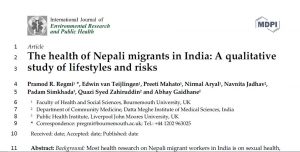


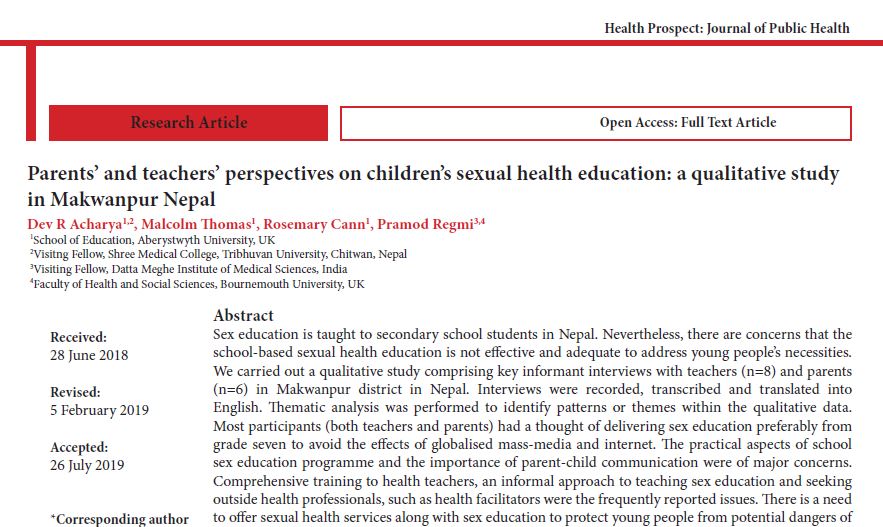
 The European Commission maintains a large number of publicly available databases with details about Horizon 2020 and other EU projects. The UK Research Office (UKRO) have recently prepared a summary of sources where data related to both submitted and funded EU projects may be found; these may be useful for academics considering applying for EU funding and searching for experienced partners for future applications.
The European Commission maintains a large number of publicly available databases with details about Horizon 2020 and other EU projects. The UK Research Office (UKRO) have recently prepared a summary of sources where data related to both submitted and funded EU projects may be found; these may be useful for academics considering applying for EU funding and searching for experienced partners for future applications. CORDIS
CORDIS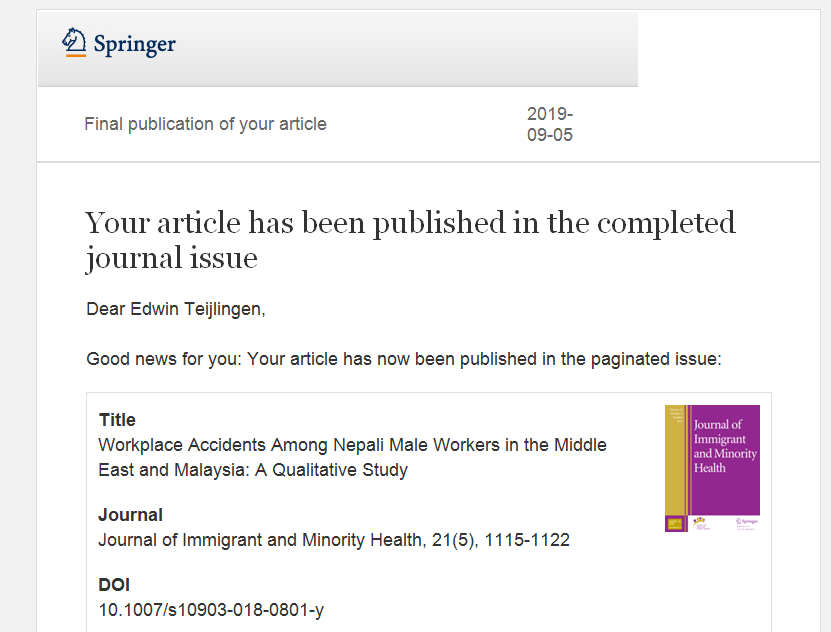
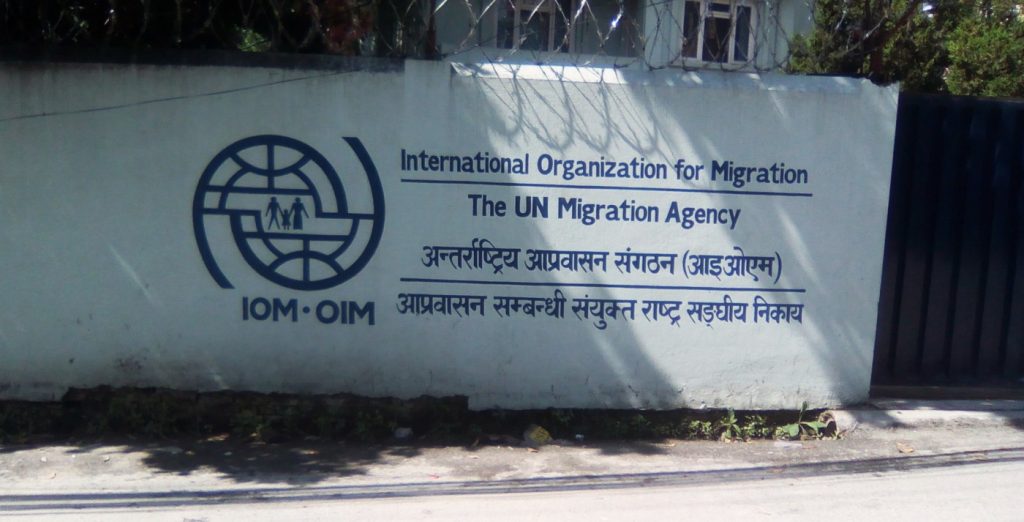

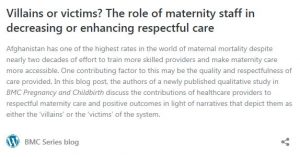
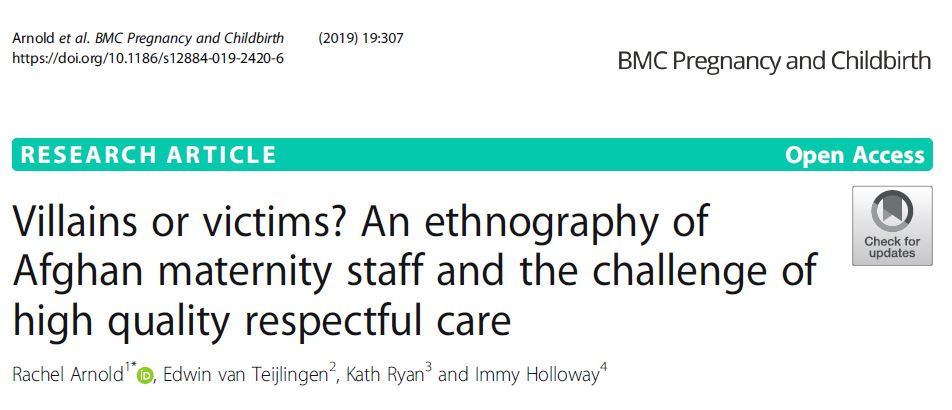
 At Bournemouth University we collaborate with global institutions and organisations through our education, research and practice.
At Bournemouth University we collaborate with global institutions and organisations through our education, research and practice.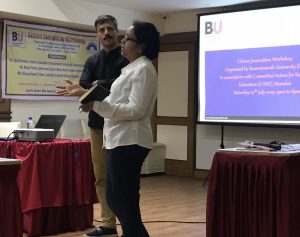


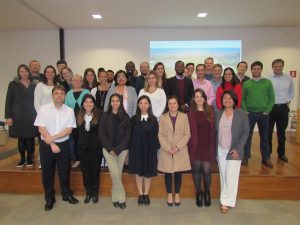





 The second wave of UK Research and Innovation’s (UKRI) Fund for International Collaboration (FIC) has been announced on Friday 9 August 2019. The Fund for International Collaboration aims to enhance the UK’s excellence in research and innovation through global engagement, forging new bilateral and multilateral research and innovation programmes with global partners.
The second wave of UK Research and Innovation’s (UKRI) Fund for International Collaboration (FIC) has been announced on Friday 9 August 2019. The Fund for International Collaboration aims to enhance the UK’s excellence in research and innovation through global engagement, forging new bilateral and multilateral research and innovation programmes with global partners. Announcement also contains summaries of the FIC Wave 1 projects funded through the UKRI-JSPS call.
Announcement also contains summaries of the FIC Wave 1 projects funded through the UKRI-JSPS call.
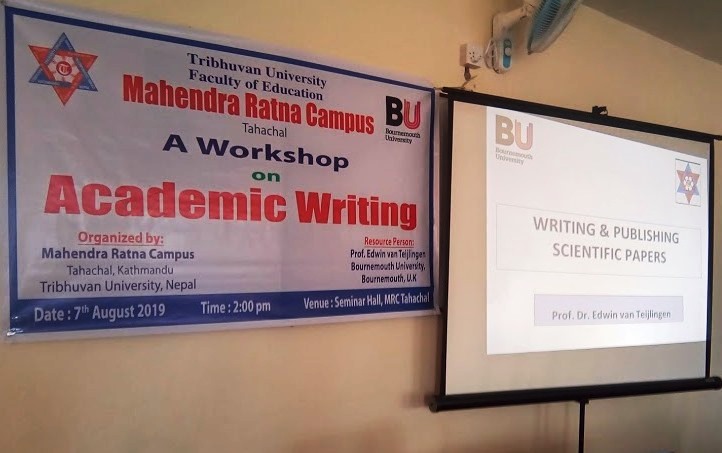
















 REF Code of Practice consultation is open!
REF Code of Practice consultation is open! BU Leads AI-Driven Work Package in EU Horizon SUSHEAS Project
BU Leads AI-Driven Work Package in EU Horizon SUSHEAS Project Evidence Synthesis Centre open at Kathmandu University
Evidence Synthesis Centre open at Kathmandu University Expand Your Impact: Collaboration and Networking Workshops for Researchers
Expand Your Impact: Collaboration and Networking Workshops for Researchers ECR Funding Open Call: Research Culture & Community Grant – Apply now
ECR Funding Open Call: Research Culture & Community Grant – Apply now ECR Funding Open Call: Research Culture & Community Grant – Application Deadline Friday 12 December
ECR Funding Open Call: Research Culture & Community Grant – Application Deadline Friday 12 December MSCA Postdoctoral Fellowships 2025 Call
MSCA Postdoctoral Fellowships 2025 Call ERC Advanced Grant 2025 Webinar
ERC Advanced Grant 2025 Webinar Update on UKRO services
Update on UKRO services European research project exploring use of ‘virtual twins’ to better manage metabolic associated fatty liver disease
European research project exploring use of ‘virtual twins’ to better manage metabolic associated fatty liver disease